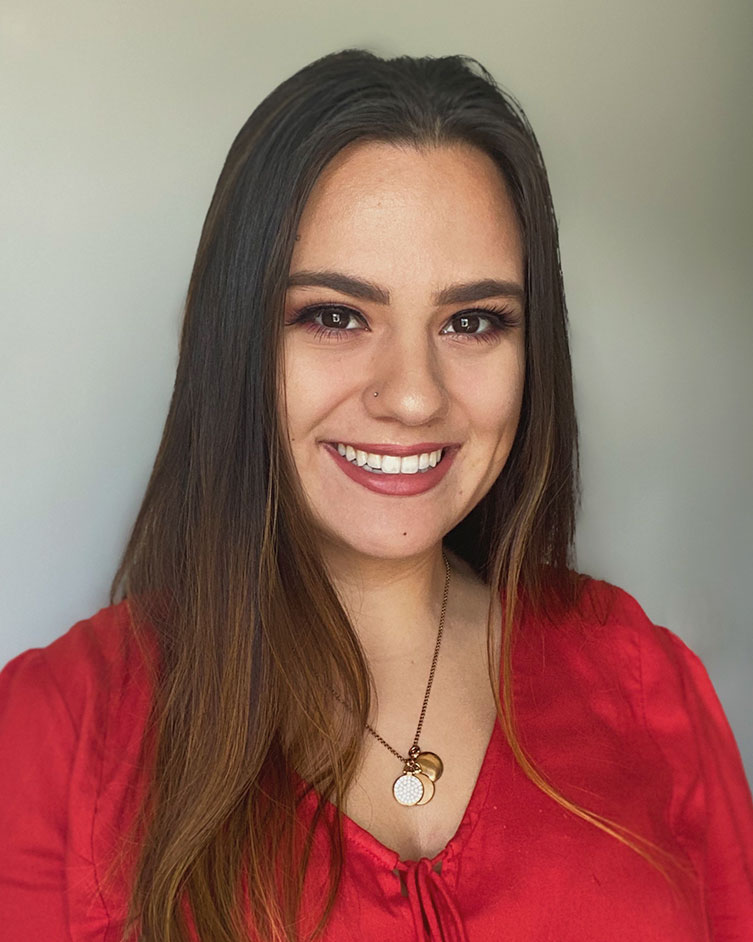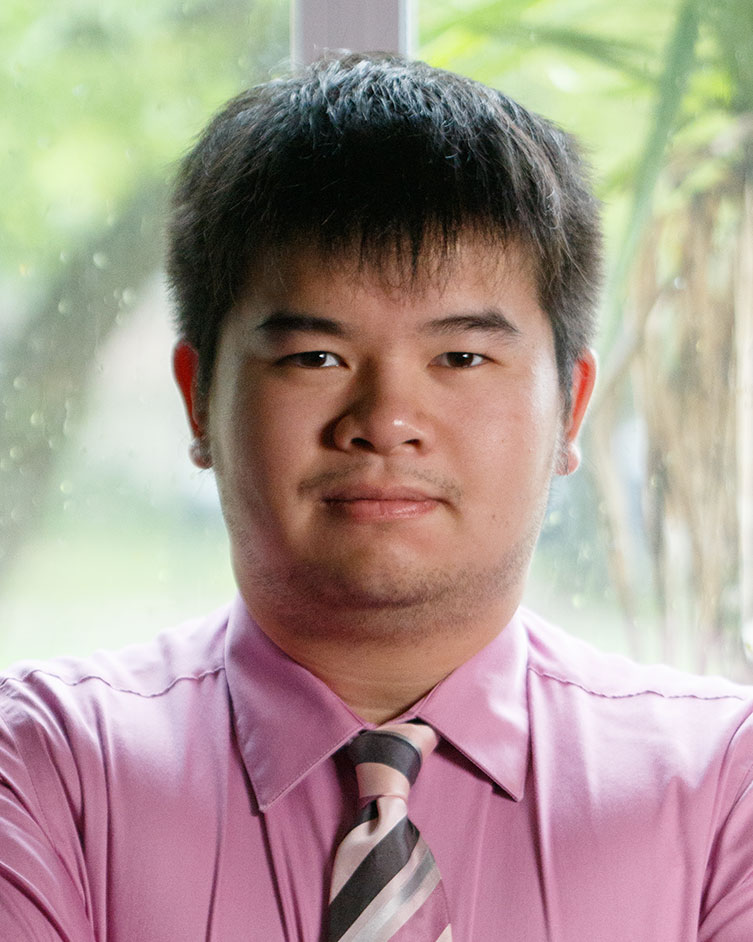Stipend and Allowance Make It Possible to Pursue Research Goals
Débora Mroczek and Brian Vu have a lot in common.
Both received their Bachelor of Science in physics from the University of Houston in May (Mroczek also received a B.S. in mathematics) and were members of UH’s Honors College. The two are also recipients of Goldwater Scholarships and, most recently, the National Science Foundation’s Graduate Research Fellowship.
The prestigious fellowship provides students a three-year annual stipend of $34,000 and an allowance of $12,000 for tuition and fees. It also gives them opportunities for international research, professional development and the ability to conduct research at any U.S. graduate school.
The recent UH grads have enrolled in Ph.D. programs out of state. However, the focus of their study within the realm of physics is much different.
Mroczek will attend the University of Illinois Urbana-Champaign this fall, seeking her Ph.D. to study the quark gluon plasma, whereas Vu wants to pursue medical physics and will attend the University of Pennsylvania, pursuing a Ph.D. in bioengineering.
Mroczek is fascinated by theory.
As a girl in Brazil, she remembers reading Scientific American and being fascinated by the quark gluon plasma, which is what scientists say was the ultra-hot, dense soup that made up the universe following the Big Bang.
Vu, on the other hand, is interested in the application of physics – especially imaging because of its wide applicability to different industries.
The two agree that being accepted into their respective graduate schools and receiving the NSF fellowship would not have been possible without the help of faculty from UH’s College of Natural Sciences and Mathematics.
Mroczek: Seeking a Challenge and Community
Associate physics professor Claudia Ratti, physics professor Donna Stokes and chemistry professor Eric Bittner were all instrumental in molding Mroczek’s undergraduate research experience.

“Dr. Ratti was a role model for me to look up to,” said Mroczek. “She’s also very understanding and dedicated to her students. She’s always taking in people who want to work with her.”
By working with Ratti’s Nuclear Theory Group, beginning her freshman year, Mroczek was introduced to Jacquelyn Noronha-Hostler, a UH post-doc at the time. Noronha-Hostler went on to join the faculty at the University of Illinois Urbana-Champaign, and it is one of the reasons Mroczek decided to apply and attend the college.
Mroczek said she is looking forward to learning from Noronha-Hostler academically through research, and she wants to learn how to be a key member of the community and help others.
“I’m really excited to work with her because she splits her time between doing research and also improving the community,” Mroczek said. “That was something I was looking for (in graduate schools) because the people that have been in my life this whole time have been so instrumental. Dr. Ratti, Stokes, Bittner … those were the mentors I went to when I had an ambition that I didn’t know what to do with or a question that I thought maybe would lead nowhere.”
In addition to working on undergraduate research, Mroczek published in two journals because of her work with graduate students: Physical Review C and Faraday Discussions – The Royal Society of Chemistry.
She is also the recipient of the Frank Robert Rodd Family Endowment Scholarship from the College of Natural Sciences and Mathematics.
Vu: Blending Two Fields of Study
Vu credits UH professors Donald Kouri in the physics department and Bernhard Bodmann in the mathematics department for helping him get this far.

“Having five to ten minutes with Dr. Bodmann or Dr. Kouri was super useful,” said Vu. “It really helped me stay on track and stay focused and avoid making a bunch of blundering mistakes that cost a lot of time research-wise.”
He met Kouri the summer before his senior year of high school at Quarknet, a summer program for high school students to become interested in undergraduate research early. Kouri liked Vu’s work ethic enough to ask Vu to do research with him at UH.
Years later, Vu began to work with Bodmann because the math professor was involved with Kouri’s work in the physics department.
The focus of Vu’s undergraduate research is generalized Hermite-Gauss quadrature. This technique is essentially a specialized way to sample a curve to determine its area using Hermite polynomials.
At the University of Pennsylvania, Vu will use his physics and math background and apply it to his specialized degree plan. In addition to taking graduate classes, Vu will take medical school courses, as part of Penn’s Interfaces Program in Biomedical Imaging and Informational Sciences.
“Whether or not I continue to an M.D. is different,” said Vu. “The program doesn’t cover the clinical training. It only covers the first two years of courses.”
Undergraduate Research
Both Vu and Mroczek thank the Office of Undergraduate Research and Major Awards, particularly the office’s director Ben Rayder, for helping them win the NSF fellowship and the Goldwater Scholarship.
“Dr. Rayder is another reason I’ve accomplished what I have,” said Vu. “He was very kind to loan his time to work one on one with a student on his app materials.”
Vu and Mroczek were able to work on undergraduate research thanks to the Provost’s Undergraduate Research Scholarship and the Summer Undergraduate Research Fellowship.
The two programs helped them establish their own independence as researchers, ask their own questions and formulate research proposals that have served them moving forward.
- Rebeca Trejo, College of Natural Sciences and Mathematics